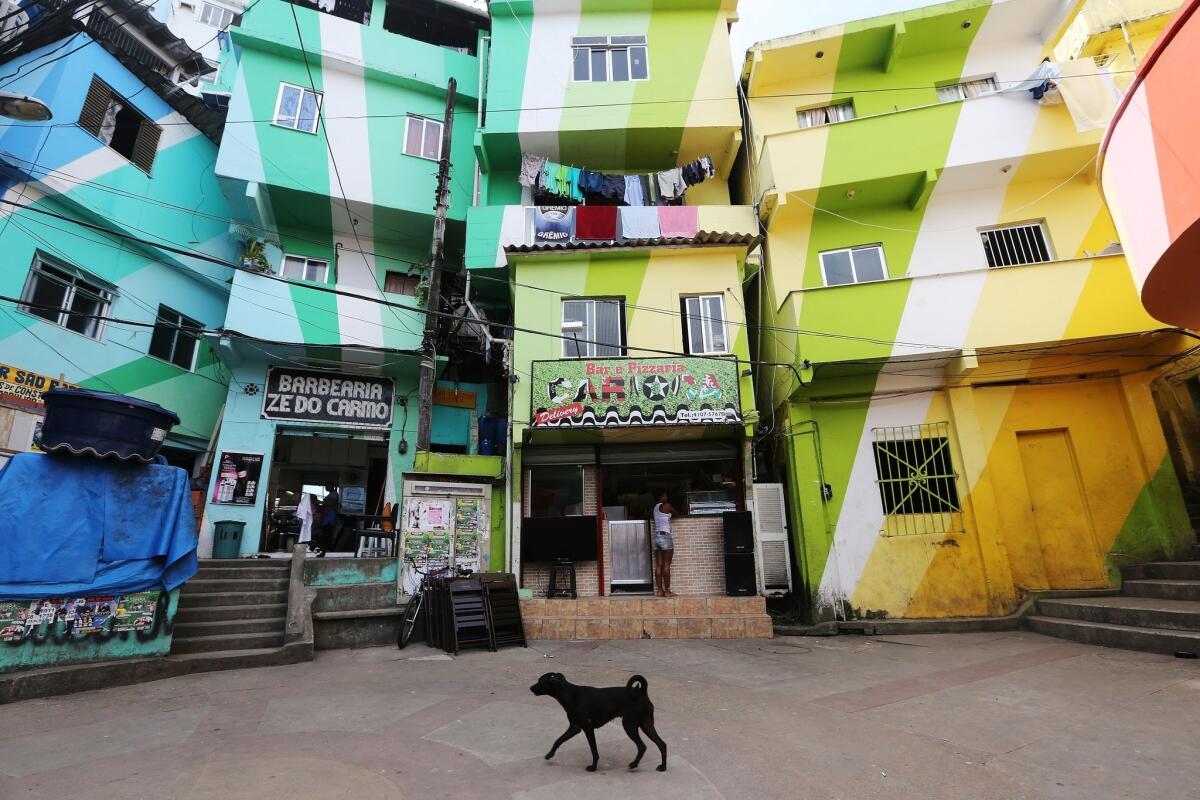America’s disappearing middle class: Prepping for doomsday

- Share via
In my Wednesday column, I described a vision of our future as imagined by economist Tyler Cowen: More rich people, more poor people and a smaller middle class; constant measurement of workers to help employers eliminate slackers; and “the creation of a new underclass,” including retirees clustered in shantytowns that resemble “the better dwellings you might find in a Rio de Janeiro favela.”
Is there any way to avoid that future, or at least make it less brutal?
Maybe. Liberals argue that a stronger social safety net, universal healthcare and a stronger education system would help. Conservatives argue that lower taxes and less regulation would produce a rising economic tide that would lift all boats.
Cowen, who describes himself as a libertarian, has some ideas too, ideas that don’t fit neatly into either of those conventional politics camps.
He says he’d favor a guaranteed minimum income for the poor, in the vein of the great conservative economist Milton Friedman, who proposed a negative income tax — that is, direct federal payments to low-income families — way back in 1962.
Cowen wants to continue spending and experimenting in ways to make education better and cheaper, to multiply the opportunities for smart and diligent poor kids to rise.
He’d remove or reduce licensing restrictions from a lot of jobs to make it easier for new entrants to get work.
He’d ease most zoning codes and building restrictions to make decent, bare-bones housing cheaper for people with low incomes.
And when it comes to fixing the federal budget, he’d take more money out of Medicare and Social Security than almost any politician has dared suggest, mostly through more means testing. (In plain English, the poor would still get Medicare, but the well-off might get stiffed.)
Here’s the catch: He doesn’t think much of that is likely to happen.
In a political system dominated by elderly voters, future spending on Social Security and Medicare is hard to cut. So those expenditures continue growing, while investment in education and safety net spending gets starved.
“We really are ruled by old people,” he told me. “And nobody seems to care. And it’s terrible.”
Isn’t there a chance that young people — the ones facing fewer opportunities in this brave new world — will rise up (or at least vote more) and demand their share?
“They ought to,” he said. “But they won’t.”
And the fact that American society is becoming more meritocratic, not less, will only “make it easier to ignore those left behind,” he said.
Meanwhile, many readers have offered other solutions through our comments section or by email. I’ll report the most interesting ideas on Thursday.
ALSO:
China’s lopsided, slowing economy
Goldberg: GOP, grand old potshots
Leave the Nevada school shooter’s parents alone
Follow Doyle McManus on Twitter @doylemcmanus and Google+
More to Read
A cure for the common opinion
Get thought-provoking perspectives with our weekly newsletter.
You may occasionally receive promotional content from the Los Angeles Times.










